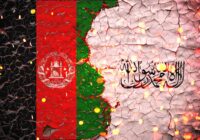In February, the Taliban refused to engage in the two-day UN-sponsored conference on Afghanistan in Doha, Qatar, and in discussions on appointing a UN envoy for Afghanistan. In light of this, exiled Afghan President Ashraf Ghani is redoubling his efforts to regain political legitimacy.
After the Taliban retook power in 2021 with a shockingly rapid advance on the capital, Kabul, Ghani fled the country. His sudden departure damaged his reputation and exacerbated the country’s already precarious situation. Afghans regarded the move as self-centered decision-making and callous, given what became of the country after Ghani left.
Since the Taliban takeover, Afghanistan’s economy, as per the World Bank, is fragile and heavily reliant on external support. The economy has shrunk by 25% over the last two years. The Taliban’s restrictive policies on women’s education and work are expected to further hinder Afghanistan’s recovery prospects. Additionally, according to the latest Women, Peace and Security (WPS) Index, Afghanistan ranks as the worst among 177 countries in terms of the status of women. Many Afghans blame Ghani for their misery.
Ghani claims his escape was necessitated by factors outside of his control. It is true that the Taliban’s advance meant Ghani’s safety was at stake. His close circle urged him to flee the country. Despite facing criticism for his actions, Ghani vigorously asserts that he is still Afghanistan’s president.
Ghani is as stubborn a pretender as he was a president
Even as his regime was collapsing, Ghan was high-handed and brooked no compromise. In his mind, the Afghan constitution empowered him to complete his term, so he would complete it. Influential figures like Zalmay Khalilzad, the senior US negotiator with the Taliban, sharply criticized Ghani. In his testimony before the House Foreign iRelations Committee, Khalilzad highlighted a last-minute success in persuading the Taliban to avoid entering Kabul and instead engage in discussions with the government to establish a transitional administration. Both sides agreed, but Ghani’s surprising departure led to the swift collapse of the now leaderless Afghan military and police. Apparently, he would rather claim his rights abroad than lay them down during negotiations in Afghanistan.
Ghani found refuge in Abu Dhabi. From this base, he has continued to leveraged any possible platforms, from diplomatic meetings to podcasts, to push his agenda. Ghani believes that Afghanistan can function as an economic bridge between West, Central, South and East Asia, and for some reason he seems to think that he has a role to play in developing that. In his podcasts, Ghani actively seeks support from both the Taliban and the broader region.
In on podcast episode, at the 18-minute mark, Ghani seamlessly transitions from technical discourse to outlining Afghanistan’s political path. He critiques militant groups opposing the Taliban and acknowledges ethnic diversity challenges within his administration. Ghani advocates for establishing a Loya Jirga (a great council of tribal leaders) to focus on the internal dimension of political legitimacy for the Taliban regime and emphasizes the importance of reforms. He aims for measures that could secure minimum acceptance from the people without necessitating unanimous national approval. Ghani promotes the idea that such minimum acceptance from the Afghan populace may pave the way for legitimizing the Taliban by the international community.
So desperate is Ghani to have a role to play in Afghan politics that he, who once fled the country rather than recognize the Taliban, now appears willing to sell his country out to the militants.
Ghani and allies play the influence game abroad
Meanwhile, former Afghan army officials appointed by Ghani are establishing overseas offices, positioning themselves as representatives of the former Afghan National Defense Forces prepared to confront the Taliban. This initiative explores potential avenues and strategically engages with the new US administration, as President Donald Trump’s hinted by floating the a possible US return to Afghanistan while speaking to a crowd in Fort Dodge, Iowa. If Afghanistan garners the attention of the new US administration, significant opportunities for such maneuvers could emerge as a bargaining chip.
With the potential for regional security cooperation on the rise, Ghani highlights Afghanistan’s regional significance and signals readiness to engage with the recently established Regional Contact Group for cooperation with Kabul. Nonetheless, Iran’s sway over specific Taliban factions presents a challenge to Ghani’s endeavors to initiate dialogue with the group. The region is marked by a lack of trust and duplicity, leading countries to cultivate relationships with all parties both within and outside Afghanistan as bargaining tools to advance their agendas. The regional contact group will encompass all Afghan groups, including Ghani, in the pursuit of inclusive solutions.
The collapse of the government unsettled Afghan elites, leading to their disengagement. However, two years later, these communities are regrouping and actively seeking a leader capable of articulating their concerns. Ghani positions himself as a leader within a specific faction of the Taliban opposition, advocating for reform and actively seeking a role in shaping Afghanistan’s future.
Despite the Taliban’s capture of power in Afghanistan, Ghani still maintains his Twitter profile as President of the Islamic Republic of Afghanistan. All administrative signs, flags, passports and other symbols of authority still belong to the exiled government. Afghan embassies, representatives in other countries and the UN continue to operate and represent the previous government.
Yet this is not the sort of government in exile that dreams of recapturing its homeland from the enemy like Charles de Gaulle did France in World War II. Instead, if Ghani can garner enough attention and support, he may consider playing his last card by joining with the Taliban, a preferable option to fading into obscurity. Such a move could benefit the Taliban by showcasing their tolerance and promoting legitimacy.
Although Ghani faces formidable challenges, the historical transformations in Afghanistan hint at potential advantages for both Ghani and the Taliban should his inclination to cooperate with them come to fruition. While a return to Afghanistan may not align with Ghani’s preferences, it offers a more favorable prospect compared to fading into obscurity in Abu Dhabi. Through astute positioning in negotiations, particularly by considering regional interests, Ghani may move closer to achieving his aspirations.
[Gwyneth Campbell edited this piece.]
The views expressed in this article are the author’s own and do not necessarily reflect Fair Observer’s editorial policy.
Support Fair Observer
We rely on your support for our independence, diversity and quality.
For more than 10 years, Fair Observer has been free, fair and independent. No billionaire owns us, no advertisers control us. We are a reader-supported nonprofit. Unlike many other publications, we keep our content free for readers regardless of where they live or whether they can afford to pay. We have no paywalls and no ads.
In the post-truth era of fake news, echo chambers and filter bubbles, we publish a plurality of perspectives from around the world. Anyone can publish with us, but everyone goes through a rigorous editorial process. So, you get fact-checked, well-reasoned content instead of noise.
We publish 2,500+ voices from 90+ countries. We also conduct education and training programs
on subjects ranging from digital media and journalism to writing and critical thinking. This
doesn’t come cheap. Servers, editors, trainers and web developers cost
money.
Please consider supporting us on a regular basis as a recurring donor or a
sustaining member.
Will you support FO’s journalism?
We rely on your support for our independence, diversity and quality.












Comment